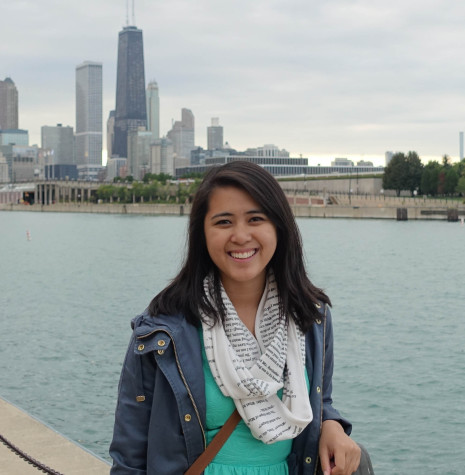CWRU students work to improve poverty housing in Habitat for Humanity trip
This past winter break, while many students were eating holiday cookies to a level of gluttony and making up for their lack of sleep from this past semester, 12 Case Western Reserve University students went on the Habitat for Humanity Collegiate Challenge trip. An 18-hour car ride brought them to Sebring, Florida to work for four days with Habitat for Humanity. The entire trip spanned Jan. 4-11.
Even though most of them had never done work with Habitat for Humanity before, many say the trip was unforgettable.
“Overall, this trip has turned out to be one of the most inspiring weeks of my life,” said Kate Mrofcza. “I will never forget the amount of appreciation the Sebring Habitat for Humanity chapter had for us. They often told us that we went above and beyond their expectations with the amount of work we could get done in a day. It made me feel like I was making a difference.”
The group painted houses, did landscaping for a family’s new home, tore down the walls of a burned down house and translated for a Puerto Rican family. However, it was not just experiencing and seeing the work Habitat for Humanity does that made this trip memorable for students.
Daniel Ryave, who also went on the trip, was inspired by Darren, a construction manager who worked with the students.
“Darren was actually an ex-convict who had completely reformed his life,” said Ryave. “Not only was he able to teach us about how to complete our daily work, but he also had a wealth of information to keep our lives on the right path and create worthwhile lives.”
Students had the opportunity to explore the surrounding area in their downtime. They traveled to Downtown Disney and visited Anna Maria Island, and many nights were filled with games of Cards Against Humanity. Sebring, Florida was only an hour and a half drive from Downtown Disney, and Anna Maria Island is about the same distance, located on the coast.
According to their website, the Habitat for Humanity Collegiate Challenge trip has been around for almost 25 years. They have 200 local affiliates throughout the country, allowing those 16 years of age or older to participate in groups of at least five. The goal of these trips is to have college students work with the local Habitat for Humanity group, community and partner families to eliminate poverty housing. Poverty housing is anything that is considered as housing that poses a risk to the health, safety or well-being of those living there as well as the neighbors.
These homes are often associated with an increased risk of disease, crime and social isolation, and a decrease in mental health. Many owners just don’t have the means to repair their houses. Habitat for Humanity exists to completely remove the presence of these houses through repair or demolishing and rebuilding them.
This service project taught many students about all the work a house needs for its upkeep, and appeared to provide a new experience for each student.
“The trip was an amazing experience that gave me a new outlook on life and a new determination to make the world a better place,” said Ryave.
Mrofcza had a similar takeaway. “I will always incorporate what I learned over the past week into my everyday life. Whenever an opportunity like this arises, I would suggest people take it. You never know who you will meet or how inspiring it will be.”

Jeniece Montellano is the social media editor for The Observer and occasionally covers stories for the news and arts and entertainment sections. She has...

